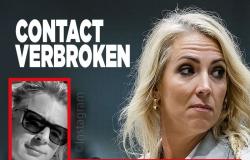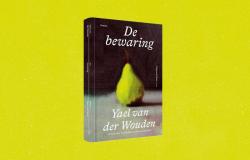Today
•
reading time 5 minutes
1955 views
•
save
A judgment does not imply a condemnation. It’s about what you can learn from it for when the need arises
The dramatic series “The Jewish Council” is nearing its end. At the end of the fourth episode, which was broadcast on Easter Sunday, we see Abraham Asscher and professor David Cohen themselves board the train to Westerbork. As a reward, Cohen was not deported to Asuchwitz but to Theresienstadt in the Czech Republic. Asscher ended up in Bergen-Belsen. There, for such special cases, the chance of survival was greater, even though there was just as good a chance that you would be sent to Poland after a while.
Theresienstadt or Terezín was a historic fortified city that Emperor Joseph II had built in 1780. Partly thanks to the barracks buildings, you could cram thousands and thousands of people together. Conditions were much worse than in Westerbork. There were famine and epidemics.
It is inevitable that Cohen bumped into Kurt Gerron in Theresienstadt. He knew him from Amsterdam. He was a German Jewish actor and filmmaker who tried to continue his career in the Netherlands after a brilliant career in Berlin. He directed our successful films Merijntje Gijzens Youth and the Mystery of the Mondschein Sonata. During the occupation he was director of the Hollandsche Schouwburg, the only theater that was still allowed to admit Jews. He organized one performance there after another until that fateful evening when Sturmbahnführer Ferdinand aus der Fünten personally appeared on stage to announce that the main hall would henceforth be a transit house for departing Jews.
In Theresienstadt, Gerron received a special assignment: he had to make a film about the pleasant lives of the Jews, who were involved in art, culture and sports. Title: The Führer gives the Jews a city. Everything was staged down to the last detail. Everything was lies and deception. Kurt Gerron did not get around to a final edit. After the shooting, he and everyone who had contributed to or appeared in the film were deported to Auschwitz and immediately gassed there. After all, the true facts of the film were never allowed to come out.
In their propaganda, the Nazis veiled the Holocaust behind words such as “final solution of the Jewish question” or – in the Netherlands – “expansion of work in the East”. When the Russians came near Auschwitz, the Nazis did their best to remove as many of the gas chambers and cremation ovens as possible. The order for Gerron to make that fake documentary was apparently also an element in the strategy to keep the Holocaust hidden as much as possible.
In general, the Nazis succeeded in their aim. In the Netherlands too. It was known that Jews were deported en masse to “the east” and that you never heard from them afterwards. Most people preferred not to think about it. During the heavy years of occupation, people also had other things on their minds. After their disappearance, the Jews were quickly forgotten. That’s how it must have happened.
In recent weeks, Rob Oudkerk, former politician of the PvdA and grandson of Professor Cohen, has regularly appeared in the media. As a small child, he sat on his grandfather’s lap, because both chairmen of the Jewish Council returned to Amsterdam in one piece after the liberation. He regularly philosophized about the question of guilt. Were Asscher and Cohen collaborators or had they tried to take responsibility and do the best they could under horrific circumstances? Oudkerk spoke scornfully about the queen and the government who fled to England and – he implied – left everyone behind.
Immediately after the war, the tragedy of the Jewish Council entered the right-wrong debate. The historian of the empire Loe de Jong and Jacques Presser, author of the still shocking and masterly Demise, had nothing good to say about this institution at the time. Dr. Bart van der Boom, lecturer at Leiden University, came to a more nuanced assessment in his 2022 The Politics of the Lesser Evil. He is convinced that Asscher and Cohen had good intentions. In an earlier work, We know nothing of their Fate, Van der Boom argues that there was hardly any suspicion about the Holocaust in the Netherlands.
It is very conceivable that someone like Rob Oudkerk struggles with questions surrounding the guilt of his own grandfather. The same may apply to many more descendants of Jewish Council employees. The question is whether society as a whole would benefit greatly from a right-wrong discussion in the current era. Of greater importance is the question of what Asscher, Cohen and the Jewish Council have in their approach causes. The conclusion is unmistakable: they have made a major contribution to the successful settlement of the Holocaust in the Netherlands. They played exactly the role that the Nazis had in store for them. This also applied to most Dutch authorities that were involved in the isolation, plunder and deportation of Dutch Jews. They have conscientiously fulfilled their duties and played their roles without concern for the consequences. After the liberation they continued to do so, for example by imposing all kinds of assessments on returned Jews for overdue tax payments.
5,000 deported Jews returned from Germany. The rest were killed or died. The vast majority of survivors owed this to their timely hiding. The only thing that made any difference was sabotage and secretly thwarting the Germans. Open resistance, such as during the February strike, was heroic but achieved nothing. In that respect, the attack by Gerrit van der Veen and his associates on the Amsterdam population register offered more perspective. They set it on fire in the hope that the Germans could no longer use it to track down people. Unfortunately, only the edges of the index cards charred. For the most part they remained readable.
During his last lecture series – about what you encountered when you were assigned to describe the mass murder of Dutch Jews and what this did to you – Presser already said that sabotage offered the best chance of success. Forging documents, creating escape routes and hiding places, passing by and not to enforce. The thoughts of the modern citizen are: Schindler’s List or Banker of the Resistancewhich shows how the Van Hall brothers fraudulently robbed the Dutch Bank of tens of millions of guilders for the benefit of the resistance.
This is the lesson for when freedom is lost again in the Netherlands and people are persecuted for their opinions or their origins.
Also on Easter, the historian Johan Snel distributed a photo via X that says it all and should remain etched in our memories:
For the rest, I am of the opinion that the surcharge scandal should not disappear from public attention, nor should the affair surrounding Groningen natural gas.
Listen The Memory Palace, the weekly podcast by Han van der Horst and John Knieriem about politics and history. Now: Holocaust in the time of Gaza.







